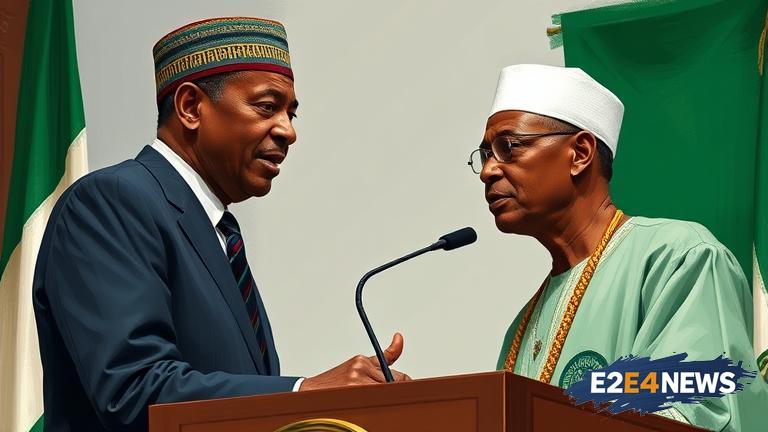The Nigerian government is currently exploring the possibility of amending the country’s constitution to introduce a single-term presidency. This move has sparked intense debate among politicians, scholars, and the general public, with some arguing that it would help to reduce the risk of political instability and promote democratic consolidation. Others, however, are skeptical about the potential benefits of such a system, citing concerns about the potential for a lack of accountability and the concentration of power. The proposal for a single-term presidency is not new in Nigeria, as it has been discussed in various forms over the years. However, the current administration’s decision to revisit the issue has brought it back into the spotlight. Proponents of the single-term presidency argue that it would help to prevent the kind of political polarization and conflict that often accompanies presidential elections in Nigeria. They also argue that it would give the president the freedom to focus on long-term development goals, rather than being distracted by the need to secure re-election. On the other hand, opponents of the proposal argue that it would lead to a lack of accountability, as the president would not be beholden to the electorate for re-election. They also argue that it would concentrate power in the hands of the president, potentially leading to authoritarianism. The Nigerian constitution currently provides for a maximum of two four-year terms for the president. However, the proposal for a single-term presidency would require a significant amendment to the constitution, which would need to be approved by a two-thirds majority in both the House of Representatives and the Senate. The process of amending the constitution is complex and contentious, and it is likely to be met with significant resistance from various stakeholders. Despite the challenges, the Nigerian government is pushing ahead with the proposal, with the Minister of Justice and Attorney-General of the Federation recently announcing plans to establish a committee to review the constitution and make recommendations for amendment. The committee is expected to submit its report within the next few months, after which the proposal will be presented to the National Assembly for consideration. If the proposal is approved, it would mark a significant shift in Nigeria’s political landscape, with potential implications for the country’s democratic development and stability. The international community is also watching the developments in Nigeria with interest, as the country is seen as a key player in regional and global affairs. The United States, the European Union, and other major powers have all expressed support for democratic consolidation in Nigeria, and are likely to be keenly interested in the outcome of the constitutional amendment process. In addition to the potential benefits and drawbacks of a single-term presidency, there are also concerns about the potential impact on the country’s economy and social development. Some argue that a single-term presidency would provide stability and predictability, which would be beneficial for investors and businesses. Others, however, argue that it would lead to a lack of continuity and consistency in policy, which could have negative consequences for the economy. The debate over the single-term presidency is also taking place against the backdrop of Nigeria’s complex and often contentious political history. The country has experienced several periods of political instability and conflict, including a civil war in the 1960s and 1970s, and more recent episodes of violence and unrest. As such, the proposal for a single-term presidency is being seen as an opportunity to promote democratic consolidation and reduce the risk of conflict. However, it is also being met with skepticism and resistance from some quarters, reflecting the deep-seated divisions and mistrust that exist within Nigerian society. Ultimately, the outcome of the constitutional amendment process will depend on a range of factors, including the level of support from politicians, civil society, and the general public. It will also depend on the ability of the Nigerian government to navigate the complex and often contentious process of amending the constitution. As the debate over the single-term presidency continues to unfold, it is clear that the stakes are high, and that the outcome will have significant implications for Nigeria’s democratic development and stability. The country’s political leaders must therefore approach the issue with caution and sensitivity, taking into account the diverse perspectives and interests of the Nigerian people. By doing so, they can help to promote a more stable and democratic Nigeria, in which the rights and interests of all citizens are protected and respected.
